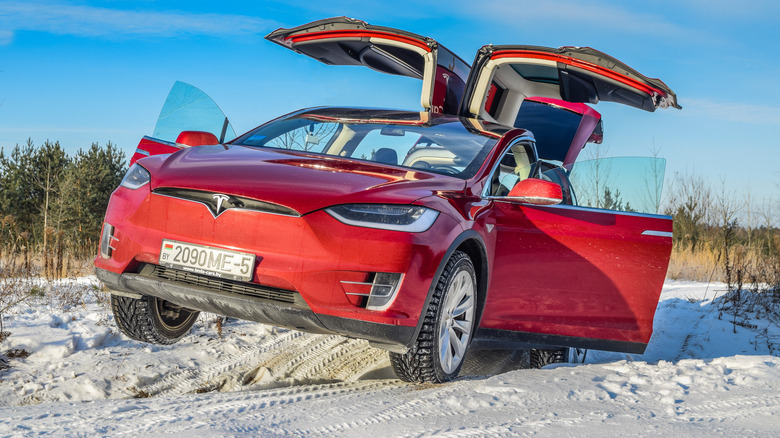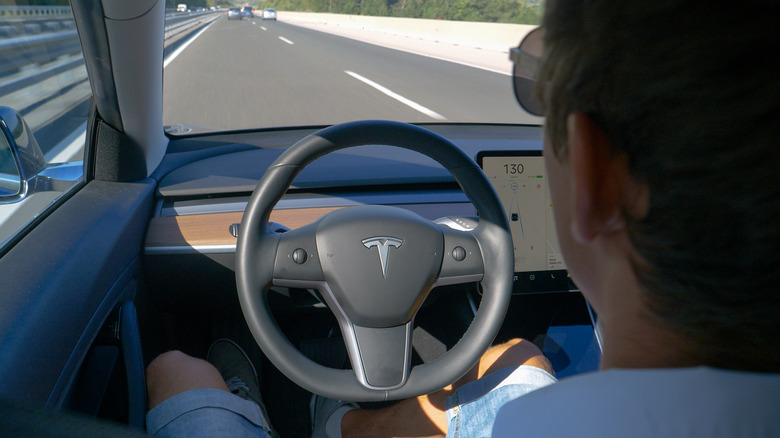The Major Road Problem Tesla Is Close To Solving
Potholes are bad news for cars and their suspension systems. If handled poorly, suspension components are known to snap, bend, break, or deform when faced with these road hazards. The rubber isolators can also be irreversibly damaged, and the other fragile parts can take heavy hits, too. Tesla aims to avoid that fate for its EVs via a new feature called Tesla Adaptive Suspension that will automatically scan the road for potholes and accordingly adjust the suspension system to minimize the risks of underbody damage.
The new trick arrives as part of the version 2022.20 software update, which states that Tesla Adaptive Suspension will be able to tweak "the ride height for an upcoming rough road section." But there's a small caveat: the automatic suspension adjustment will only happen if there's a surface map of the road ahead already available in Tesla's database for that particular region. The automaker is banking on a crowd-sourced approach for generating some sort of a pothole map — as promised by Elon Musk back in 2020 — that will be available to all Tesla vehicles coursing through an area.
Aside from reducing the risk of part damage, adjusting a car's height while crossing a pothole also ensures comfort for the driver and passengers. As long as automatic suspension adjustment is active, the driver will see an indicator for it on the instrument cluster. In order to enable the new feature, Tesla owners need to follow this path: Controls > Suspension > Adaptive Suspension Damping > Comfort / Auto Setting.
One step closer to cars that can dodge potholes
Tesla chief Musk actually confirmed plans for the pothole detection/avoidance system all the way back in 2019 for the autopilot kit. The release notes don't say whether Tesla Adaptive Suspension is exclusive to Autopilot or the Full Self-Driving system. However, the name makes it abundantly clear that the new feature will be exclusive to Tesla cars fitted with the Adaptive Suspension kit. Notably, Tesla has a history of suspension-related issues on its vehicles.
In October 2020, Tesla was ordered to recall approximately 50,000 cars in China citing potentially dangerous issues with the suspension system on Model S and X units made between 2013 and 2017 at its Fremont facility in California. Back then, Tesla ruled out any suspension defects and instead blamed it on "driver abuse." Either way, the new feature is a step in the right direction for Tesla's FSD ambitions. Avoiding potholes is one chore that forces the person behind the wheel to take control when the driver-assist system is enabled — and by the looks of it, the cars are closer than ever to eliminating that burden.
Interestingly, Google was awarded a patent for similar tech all the way back in 2015, detailing a system that would use the in-car GPS to record the location of potholes and accordingly save the information to the cloud. Of course, Google's self-driving ambitions with the Waymo division are well-known, so the patent doesn't come as a surprise at all.

